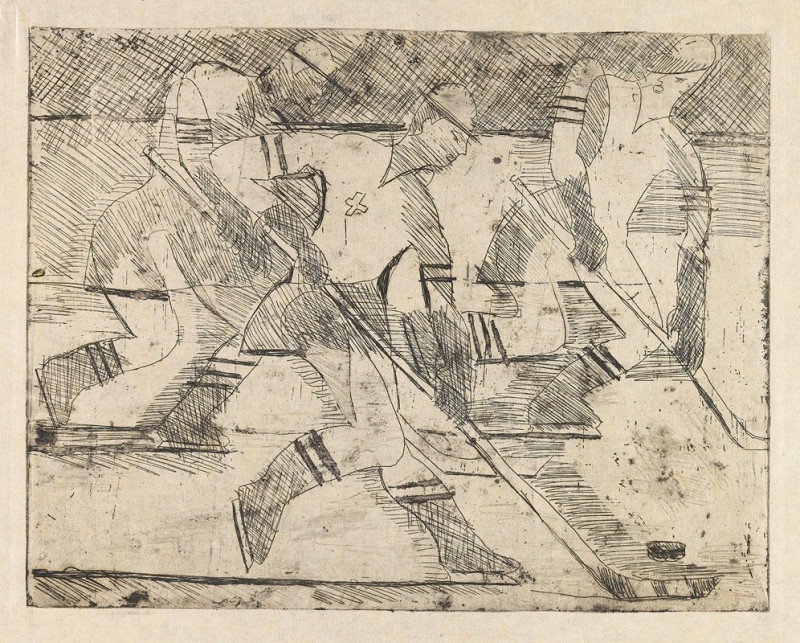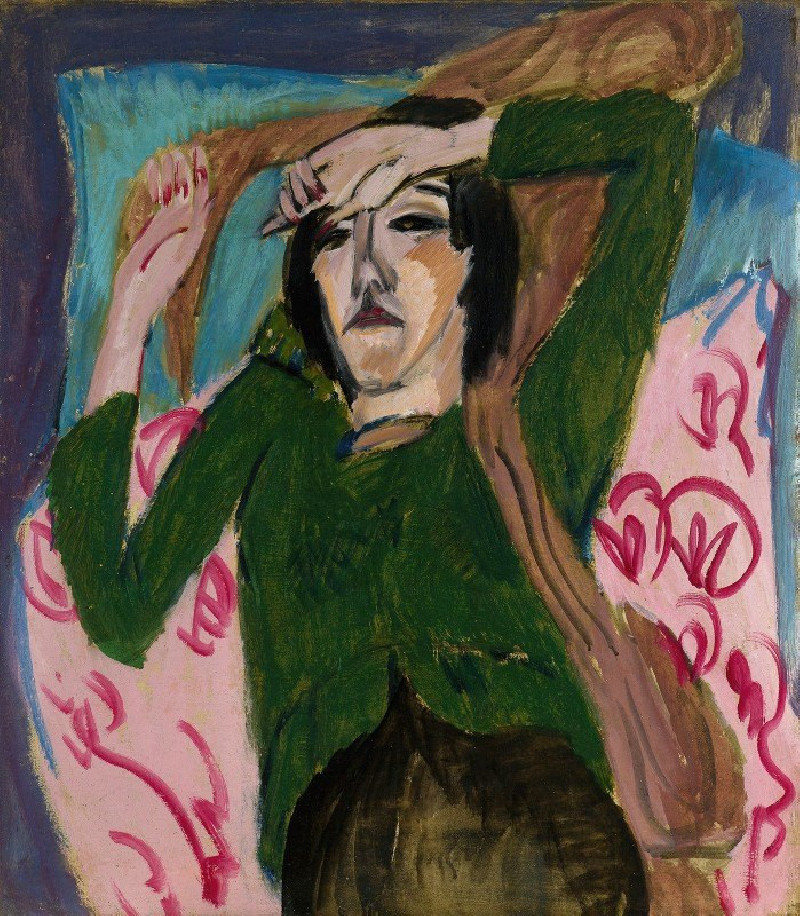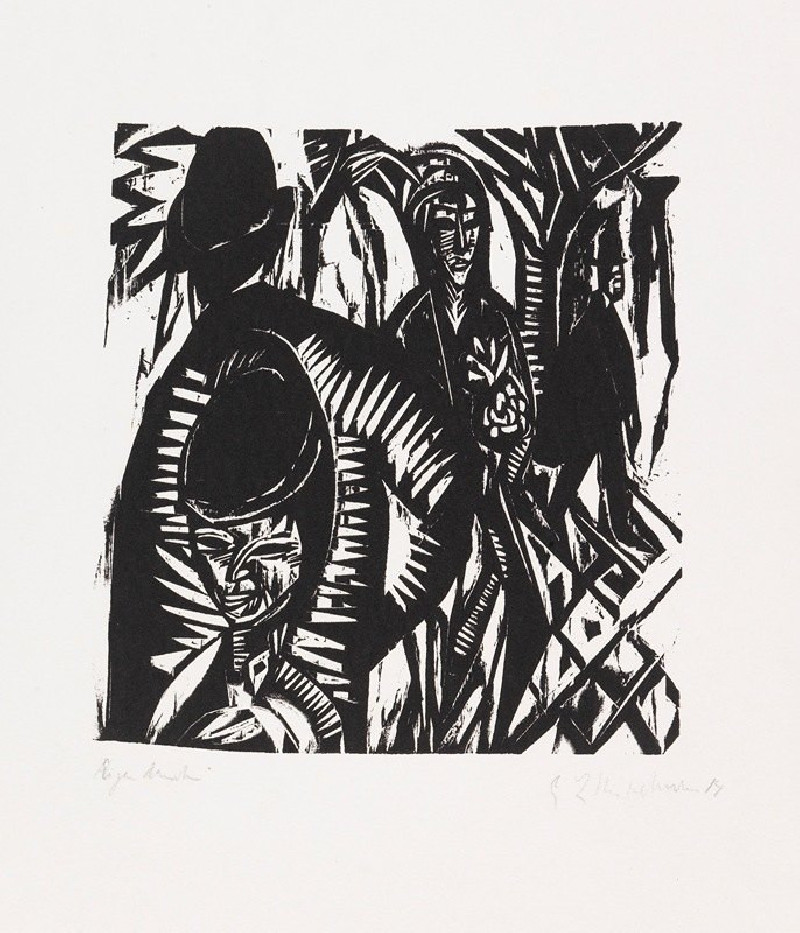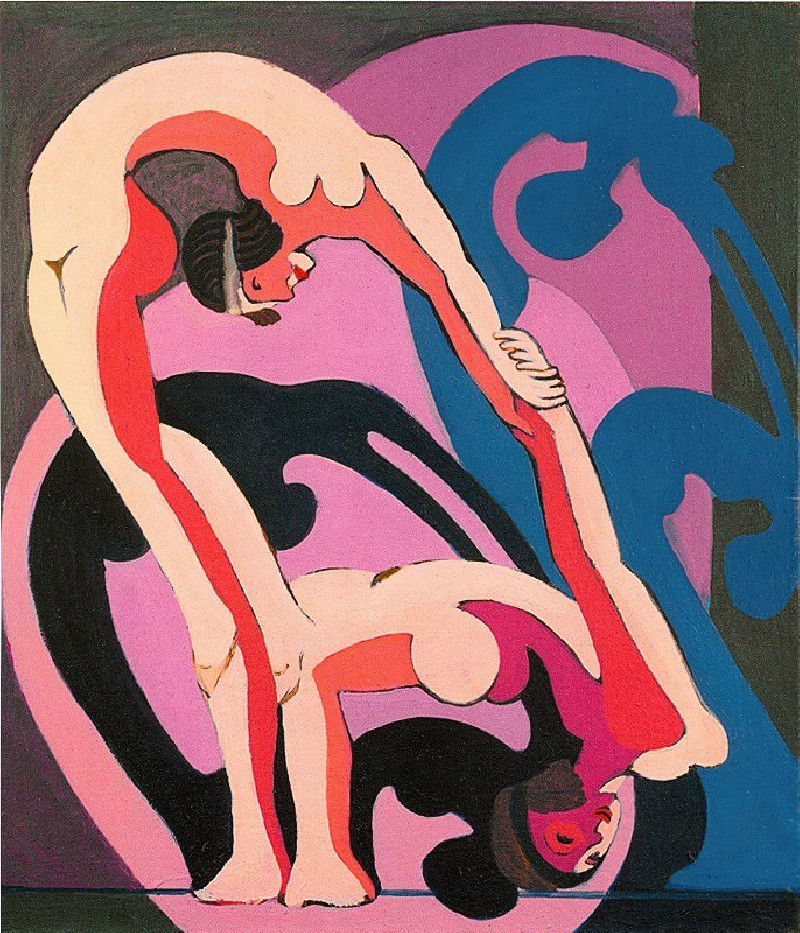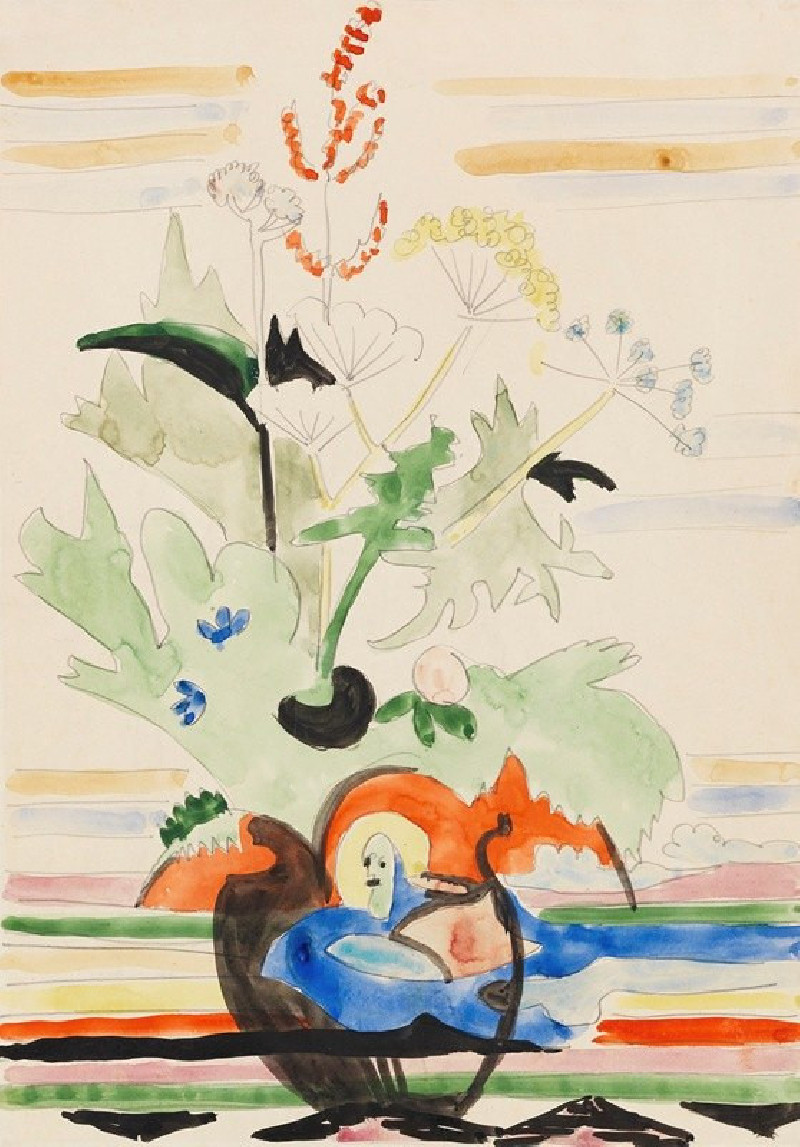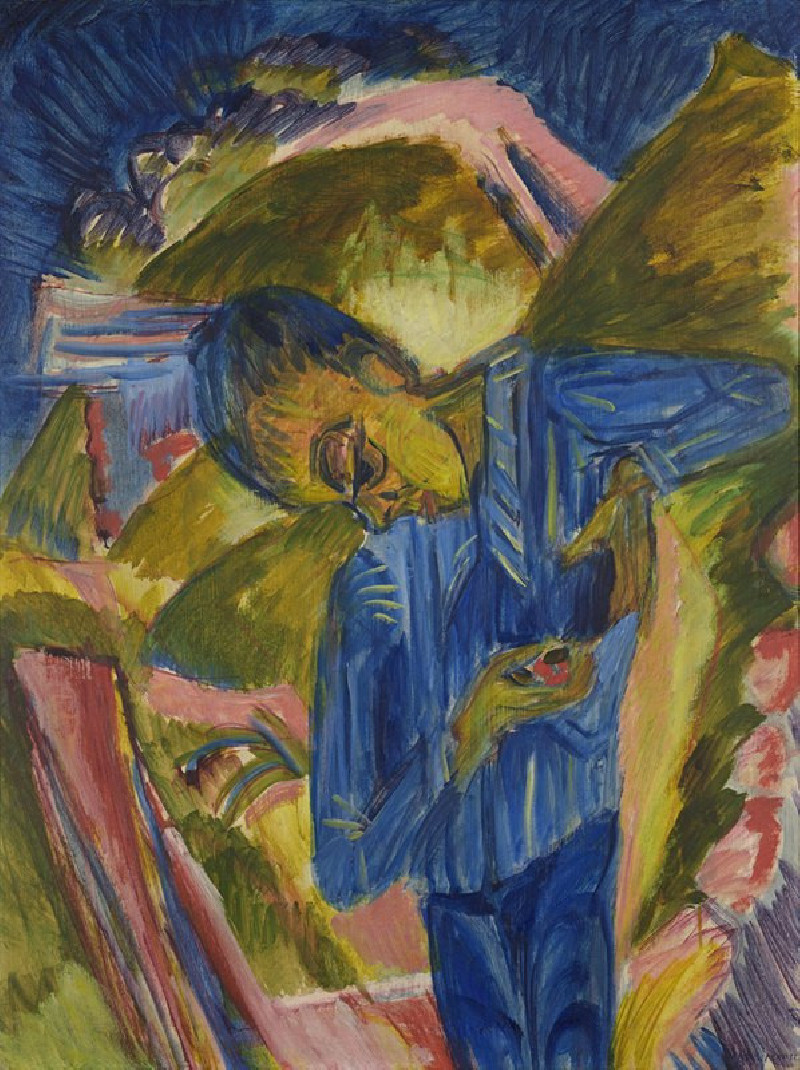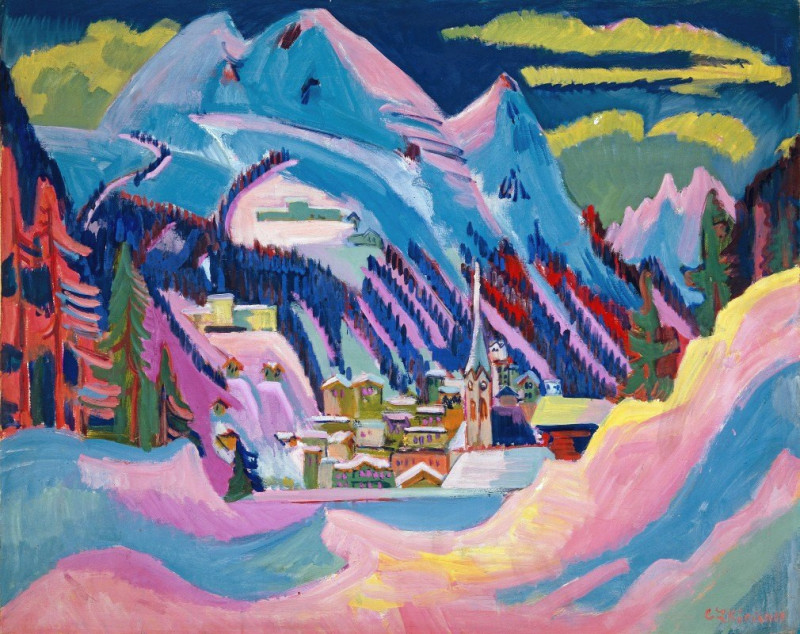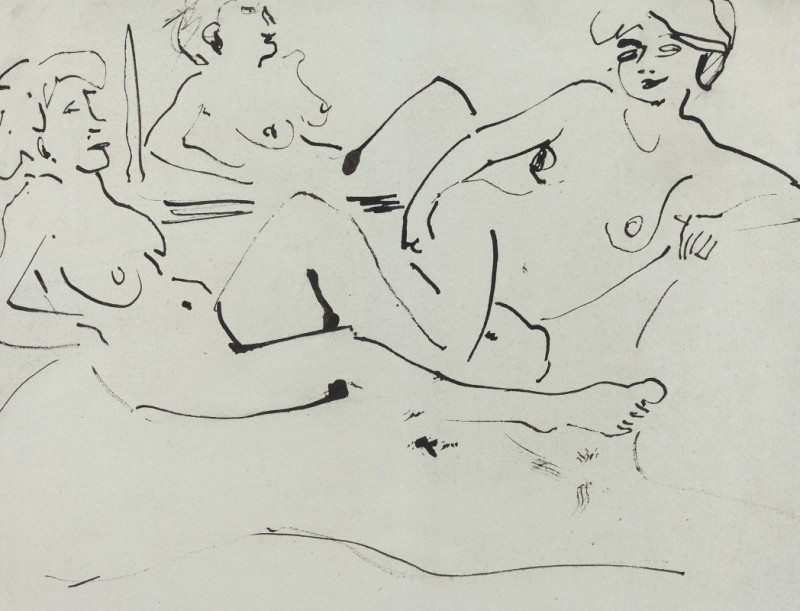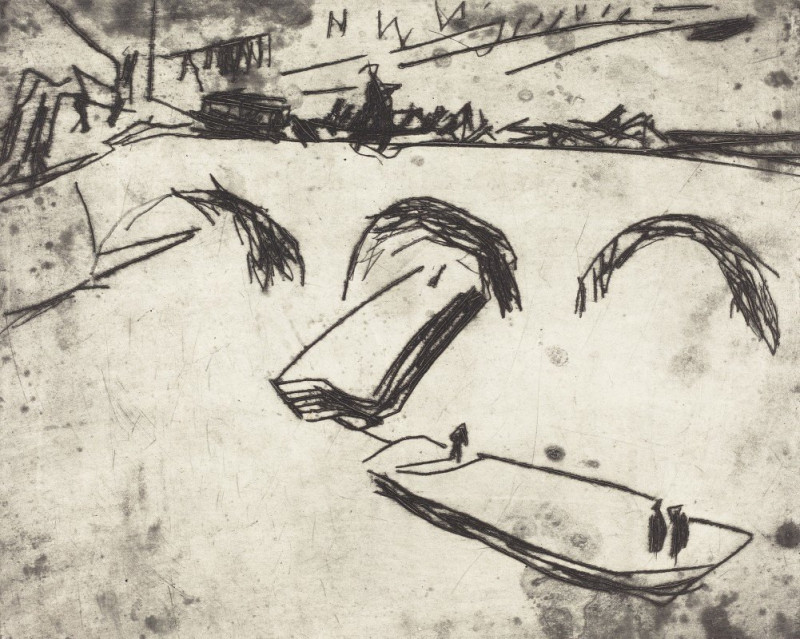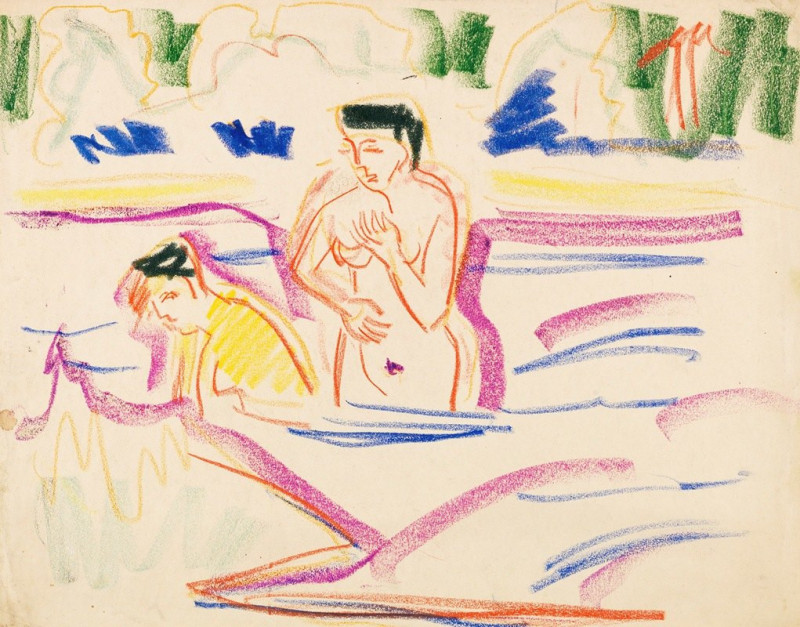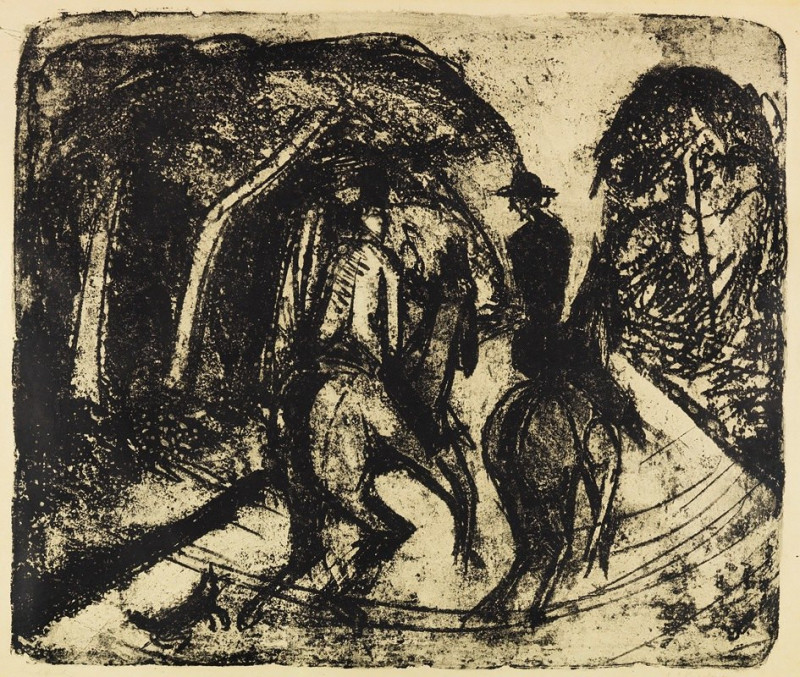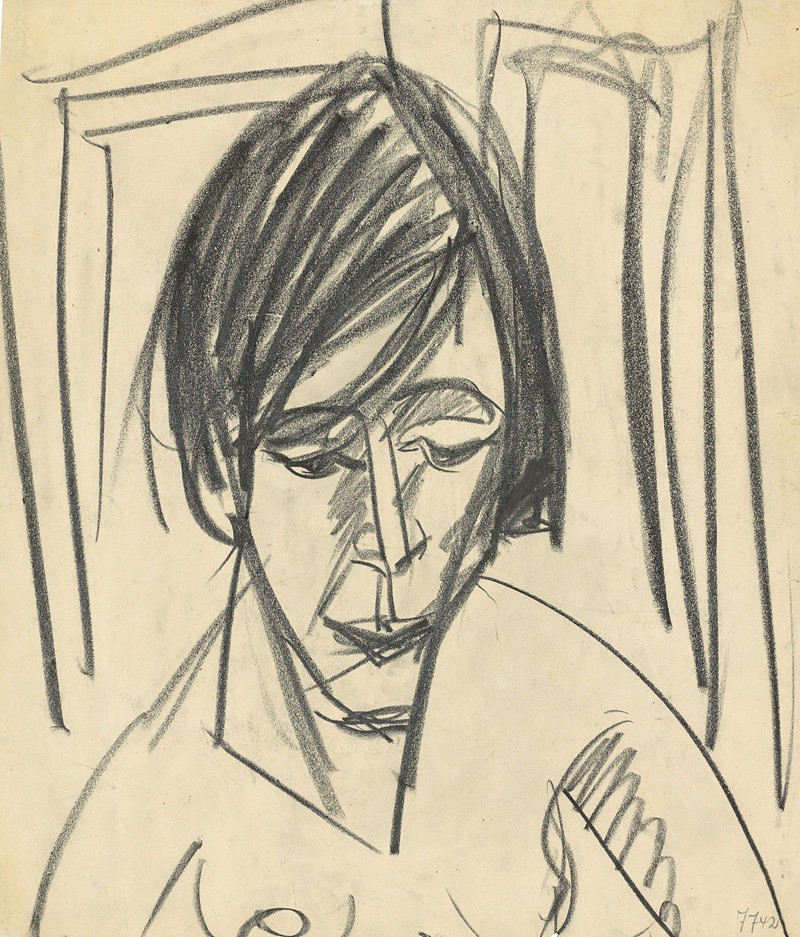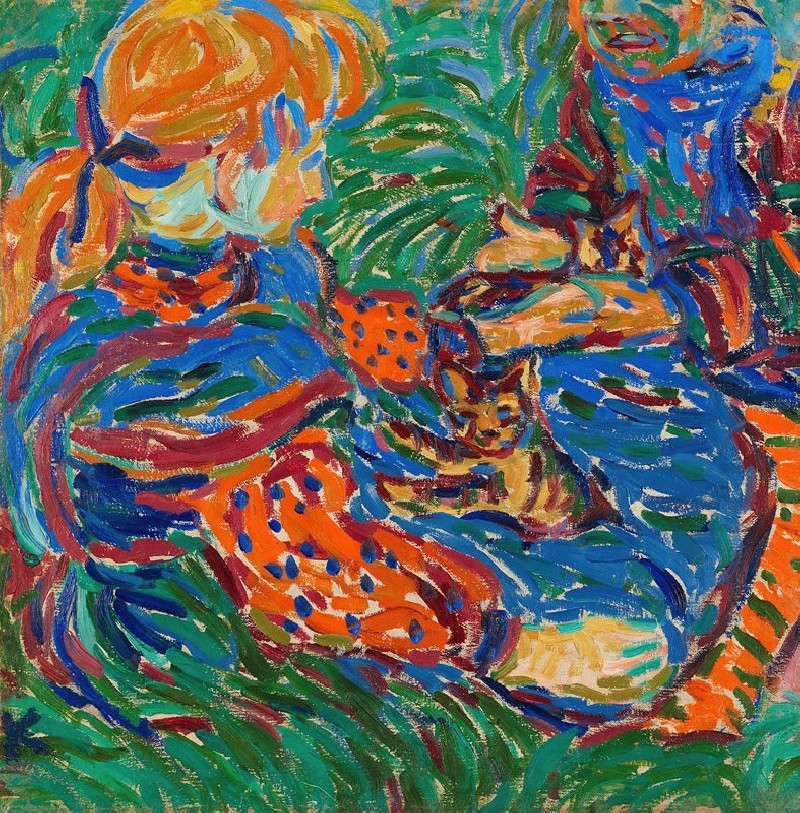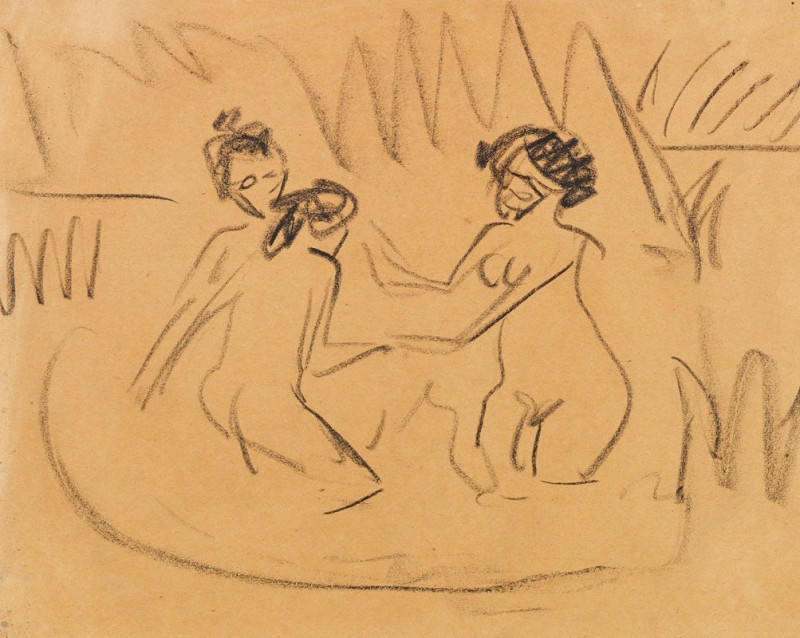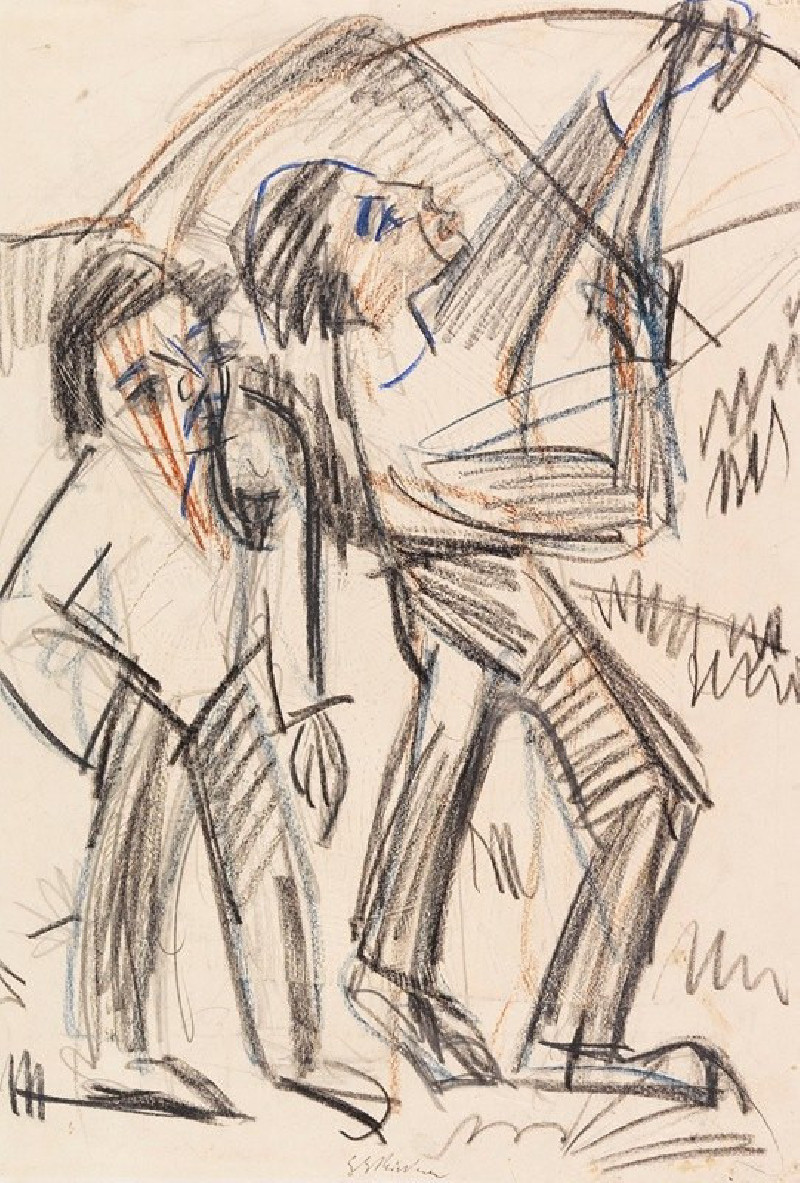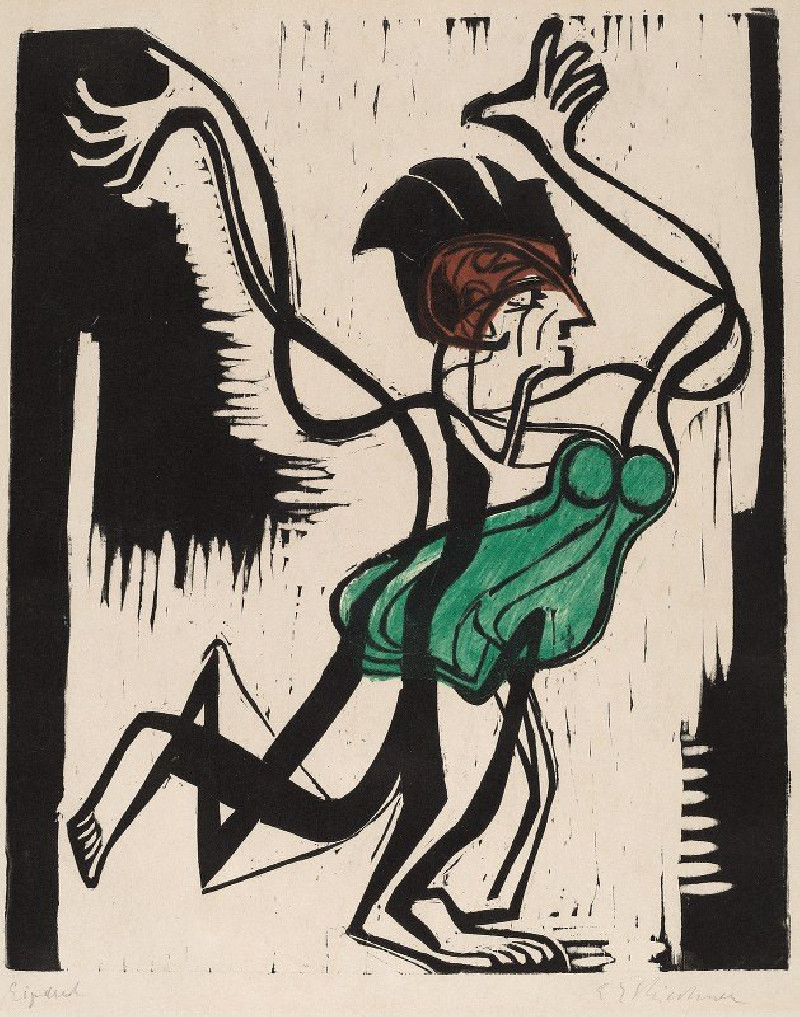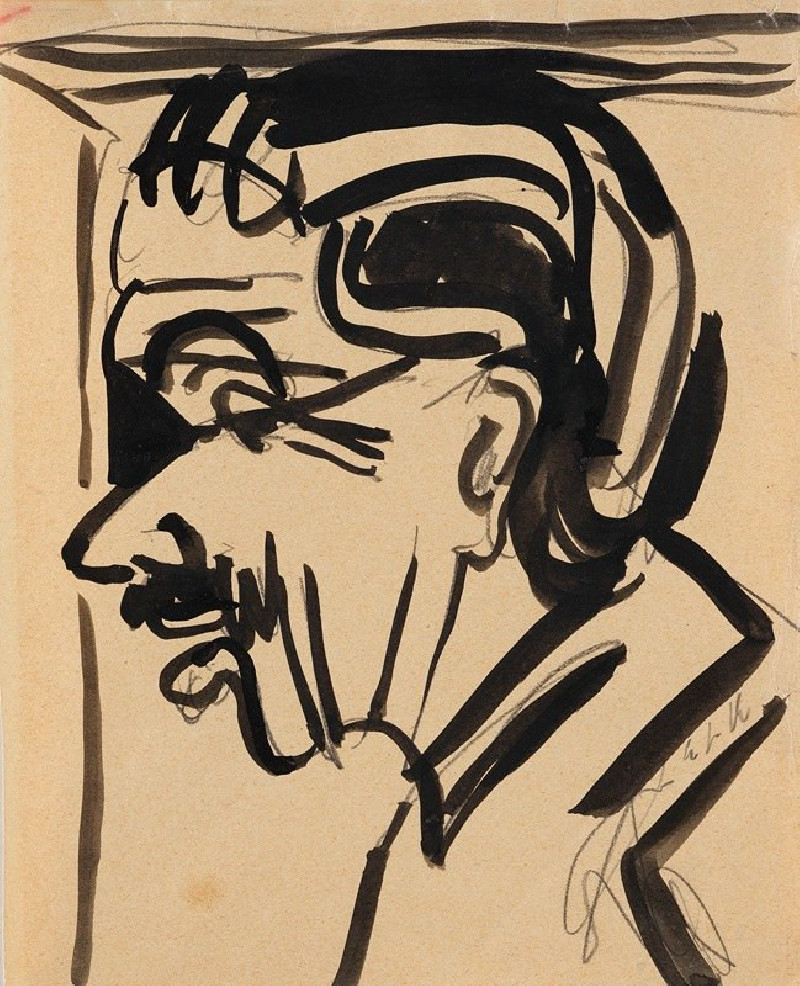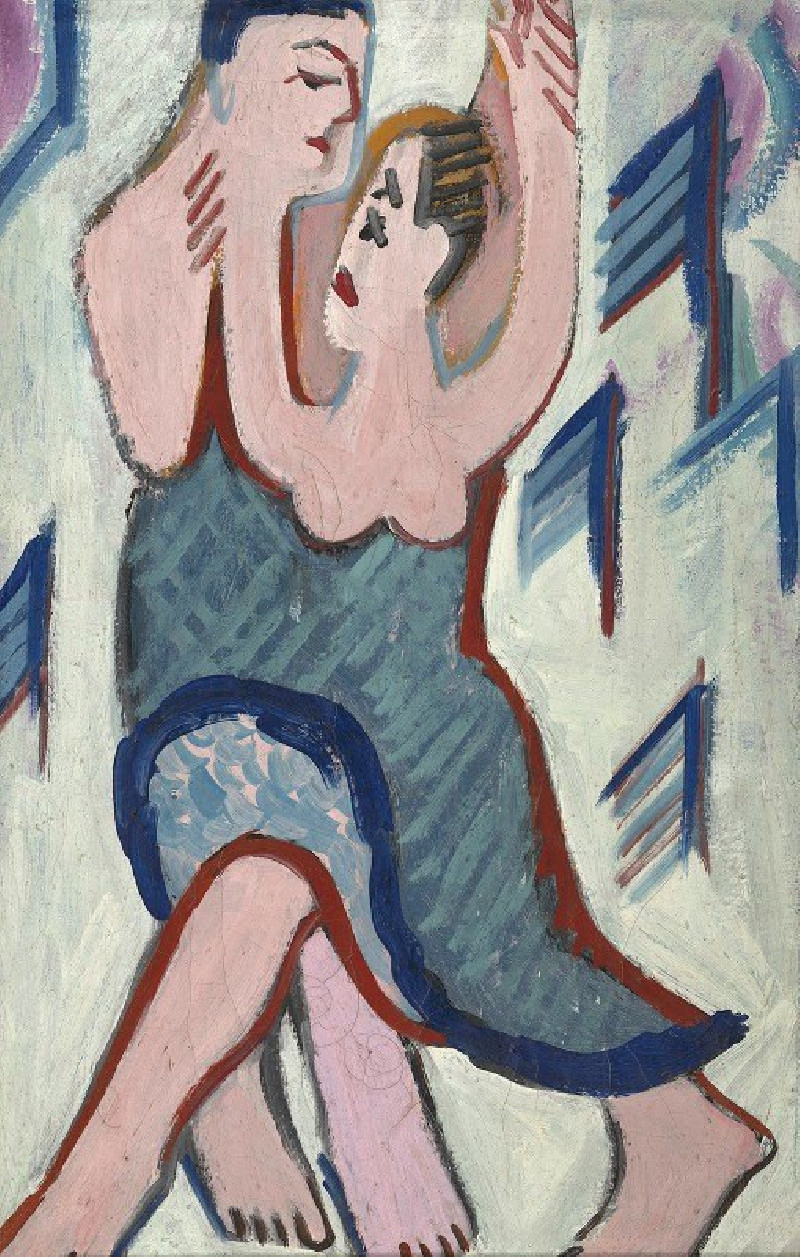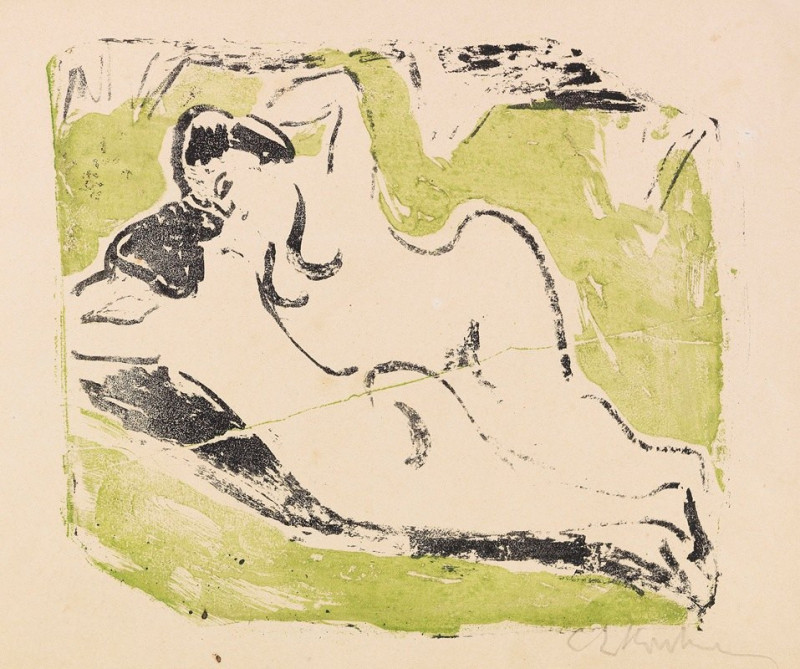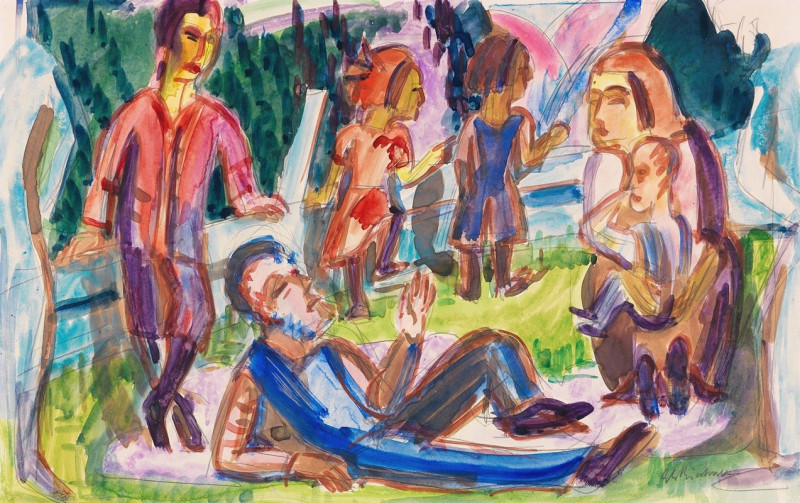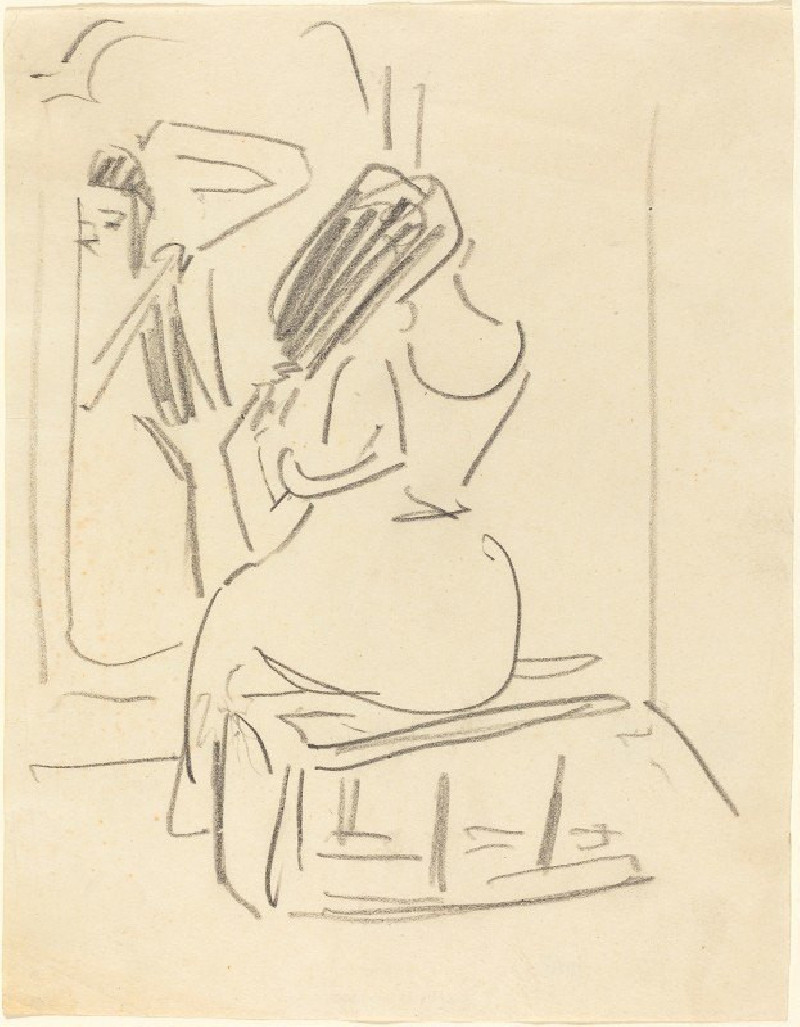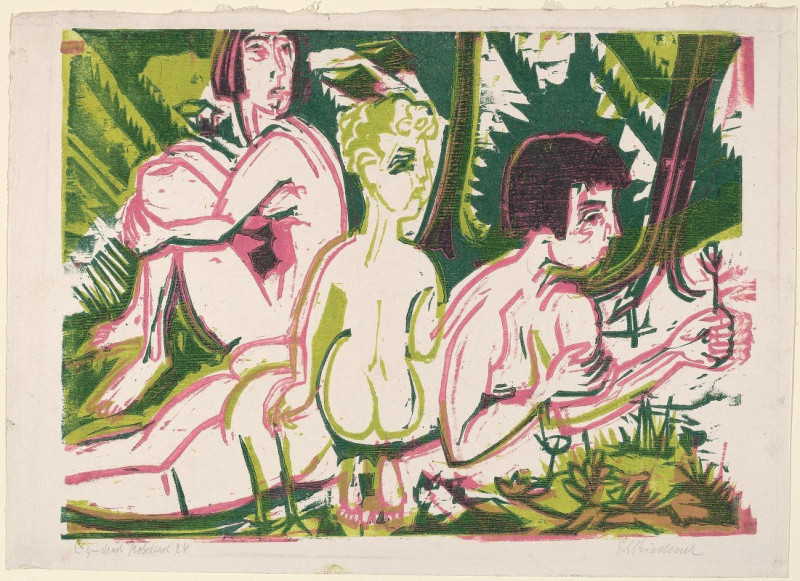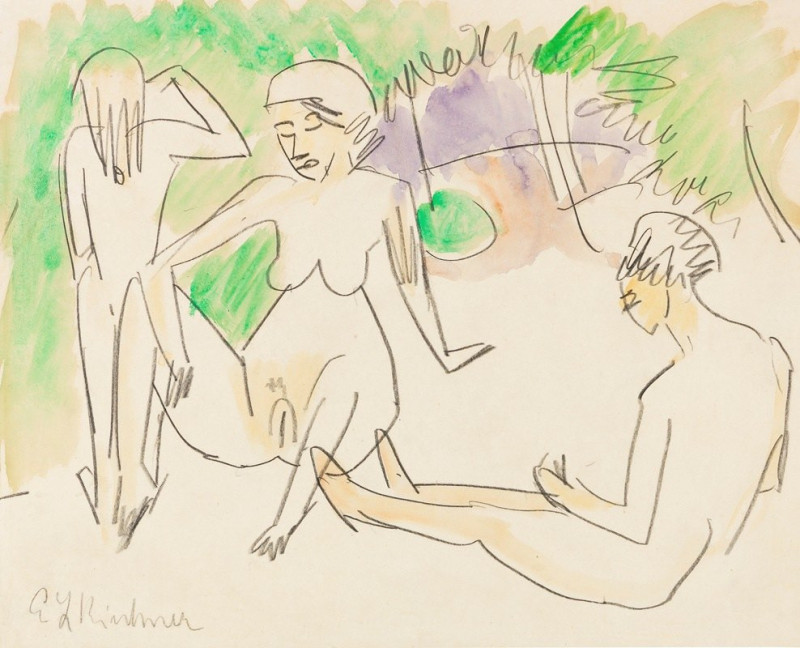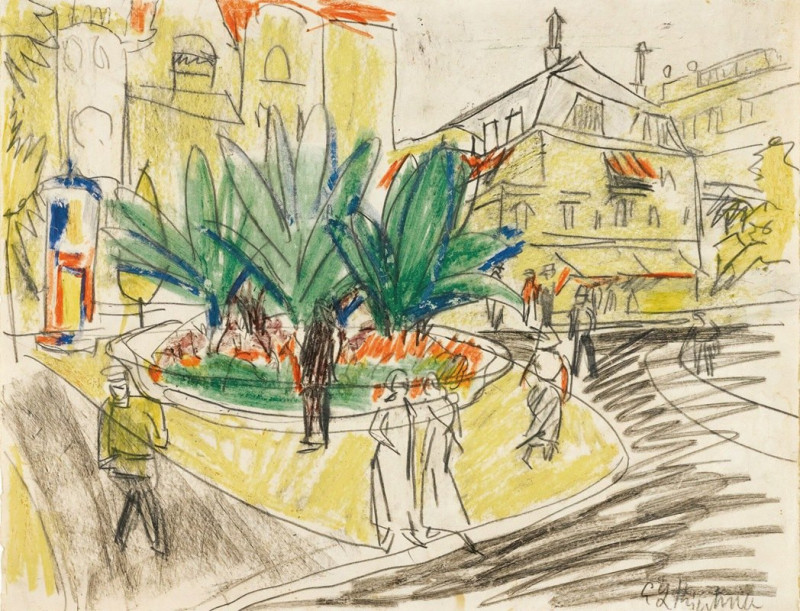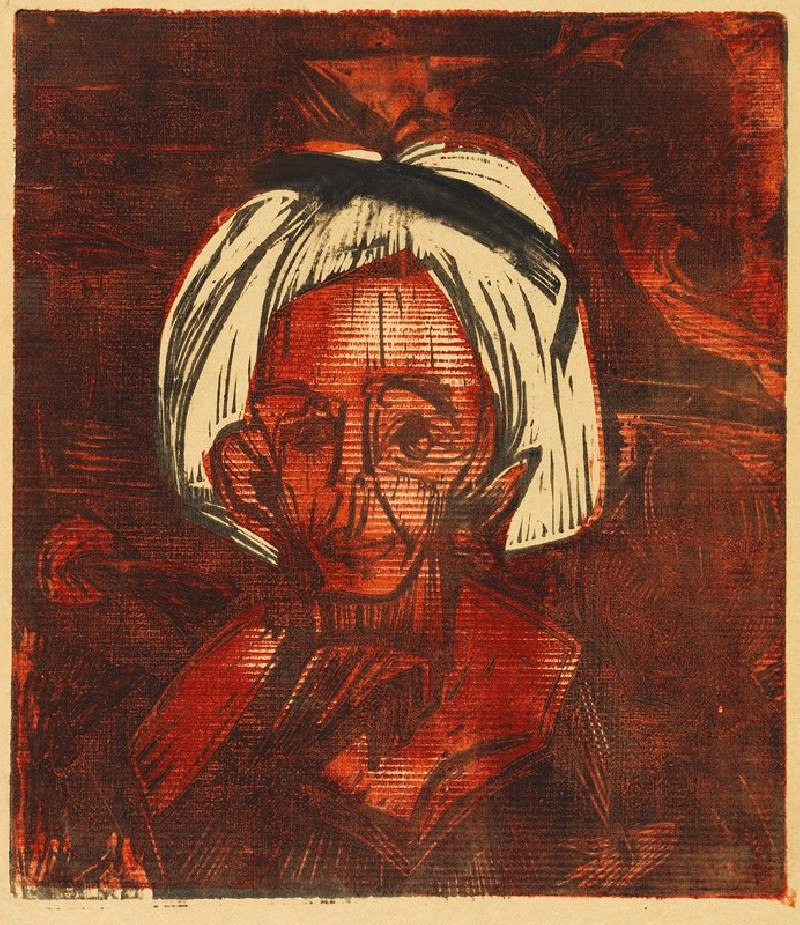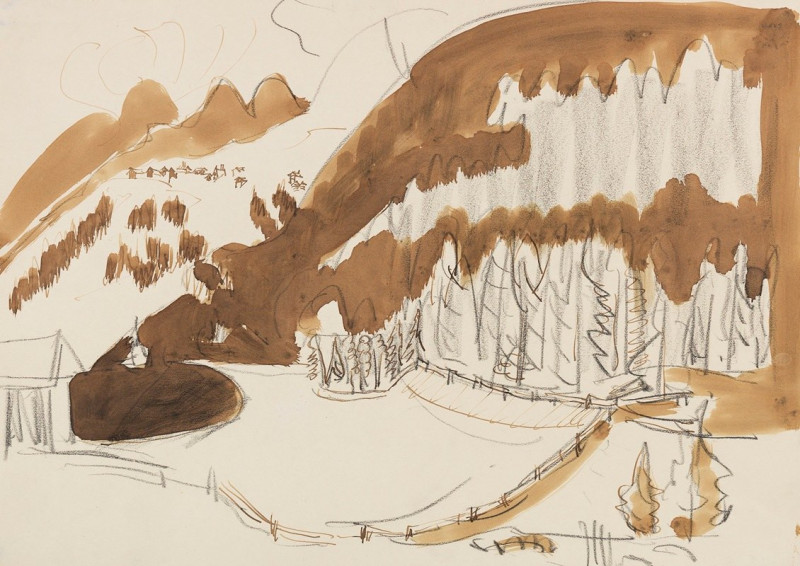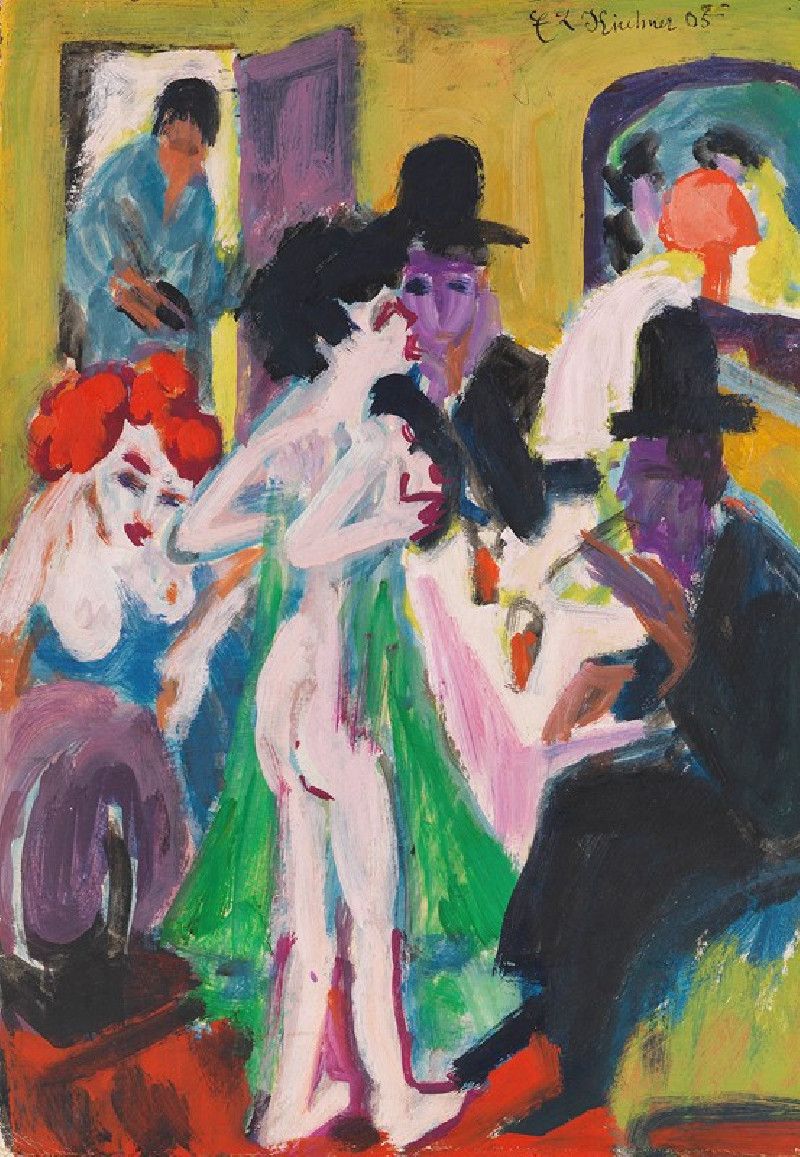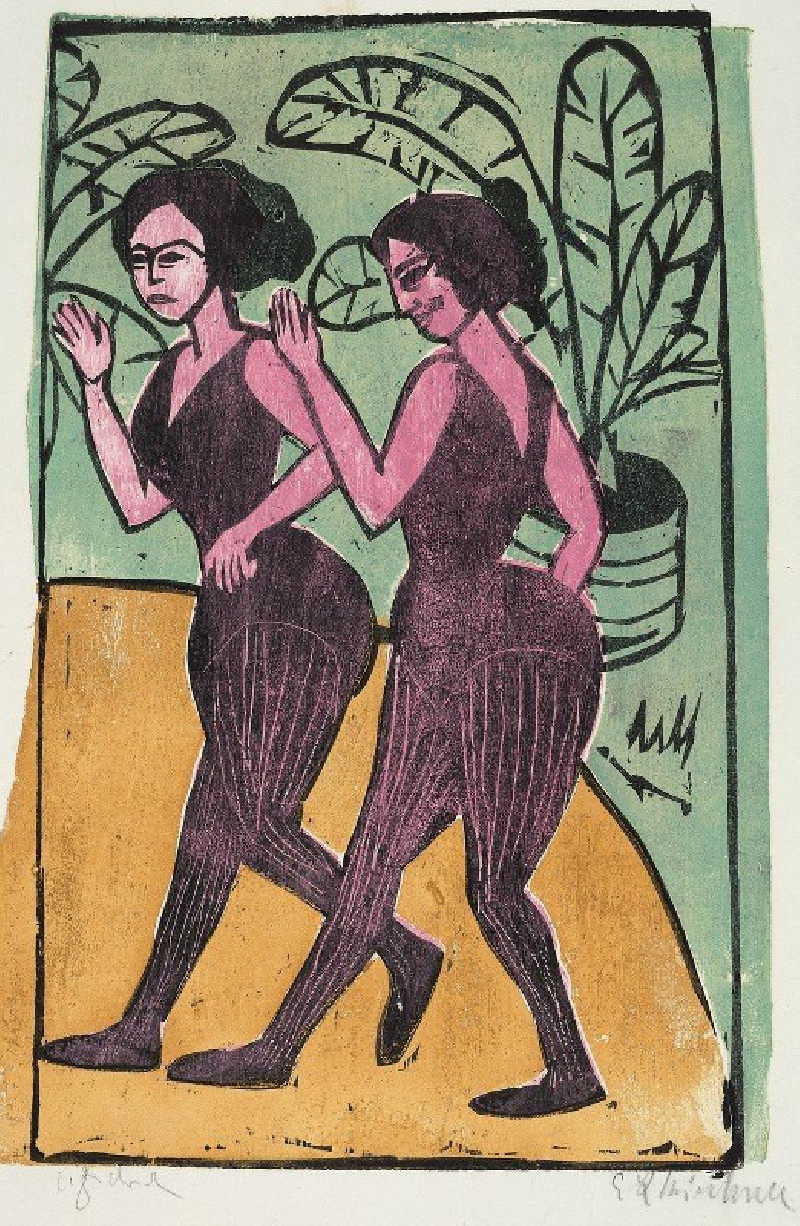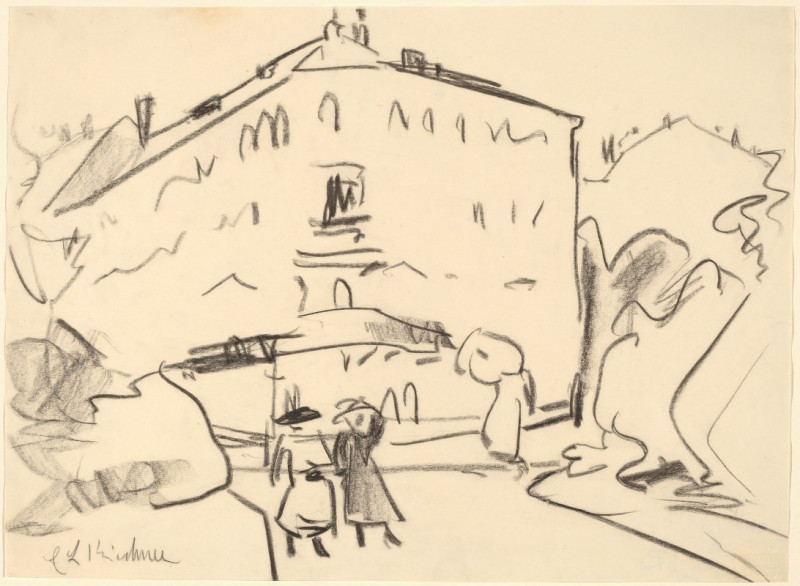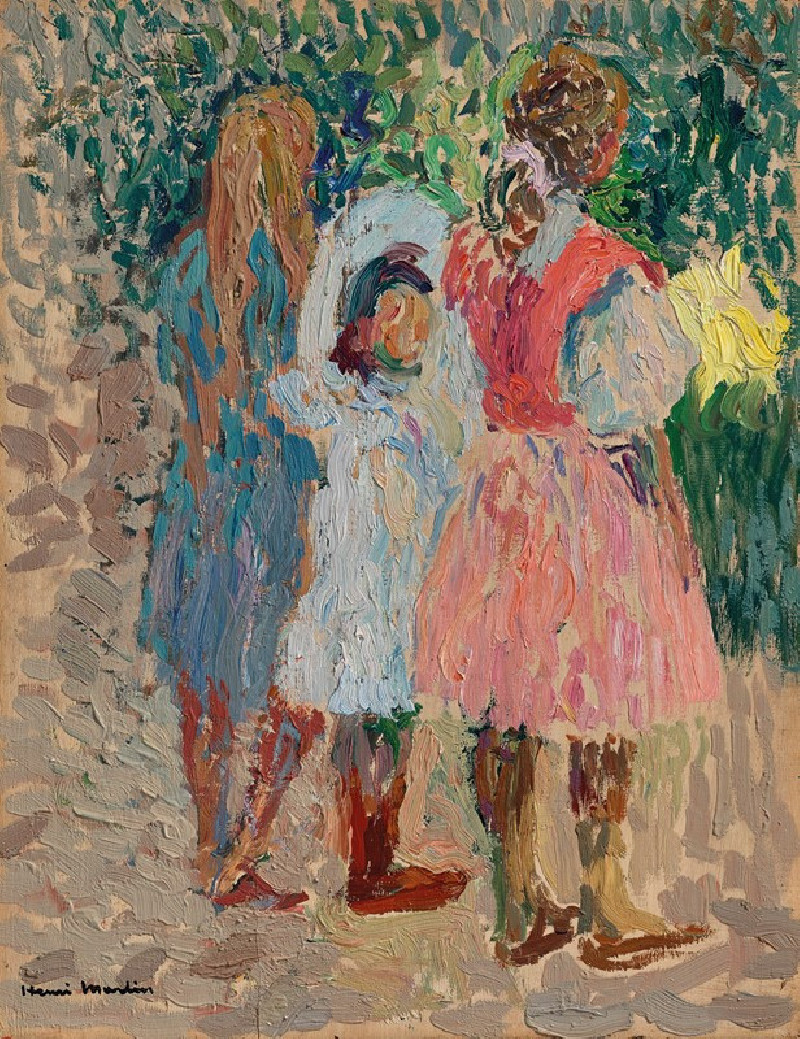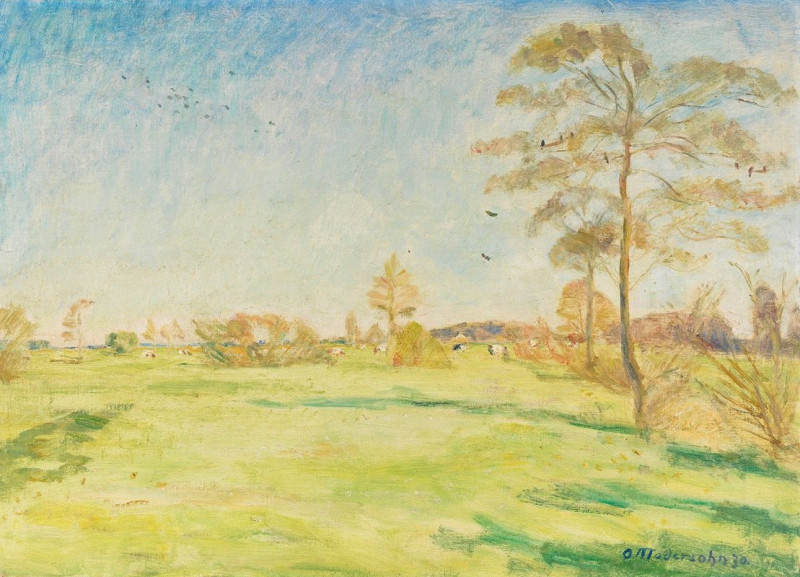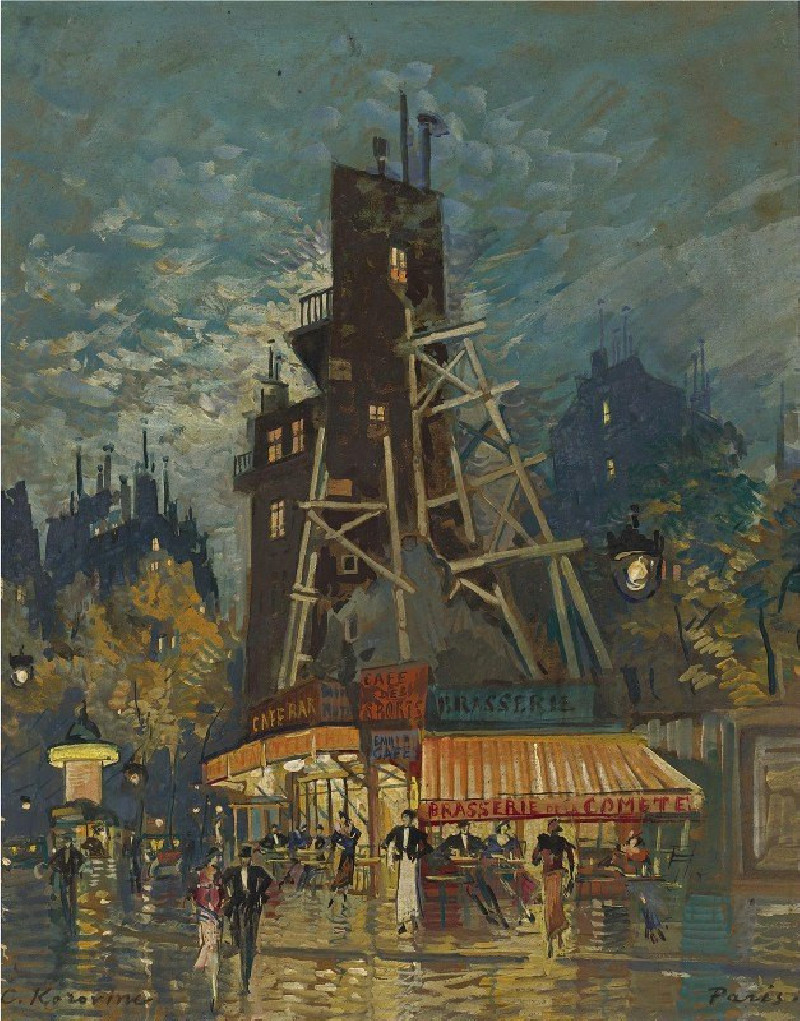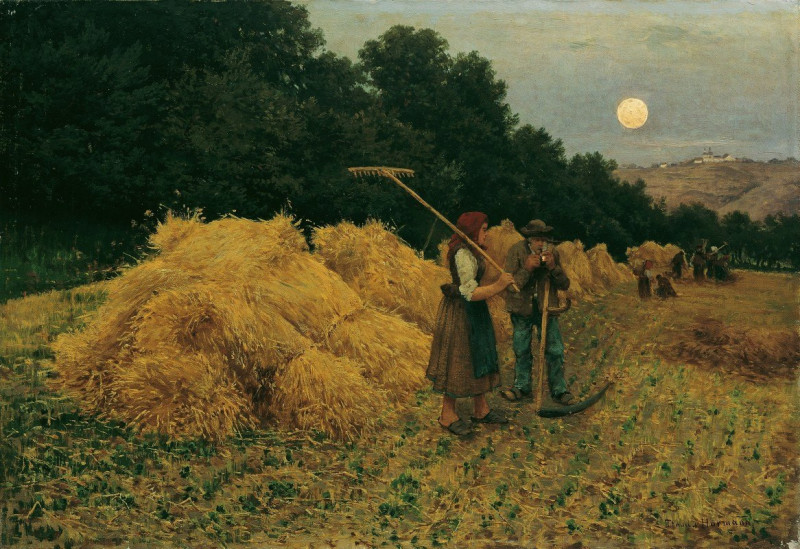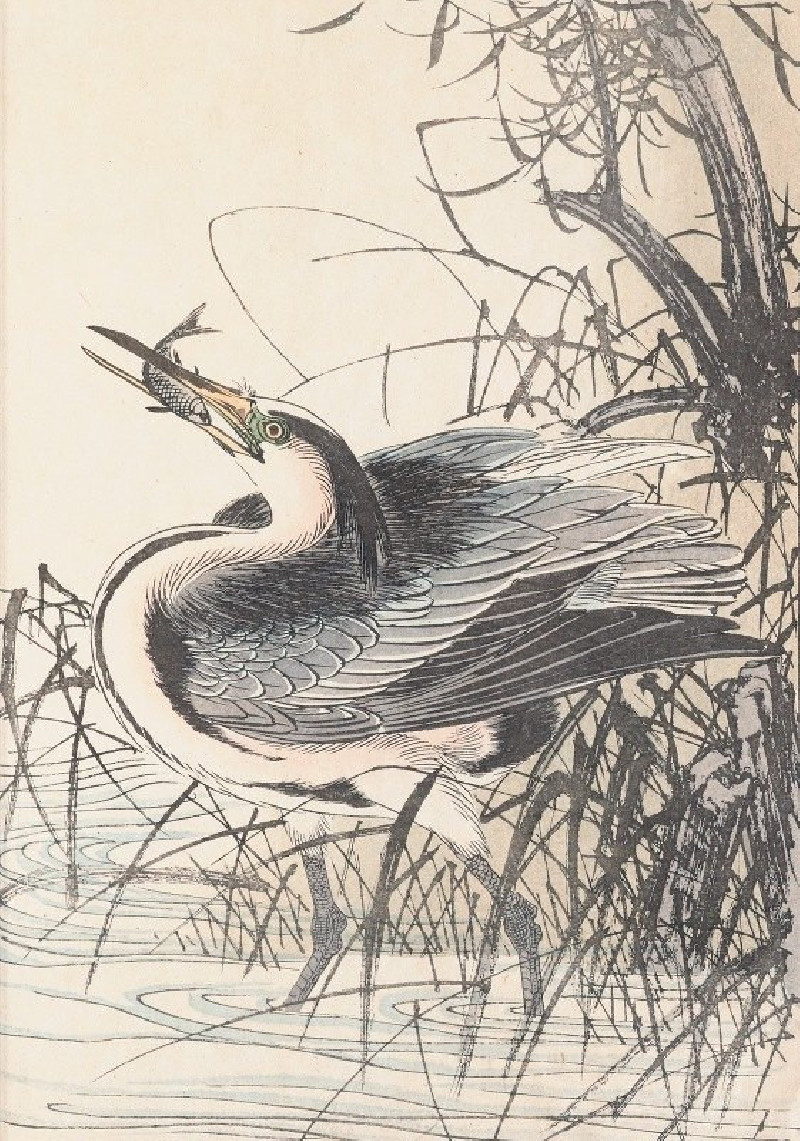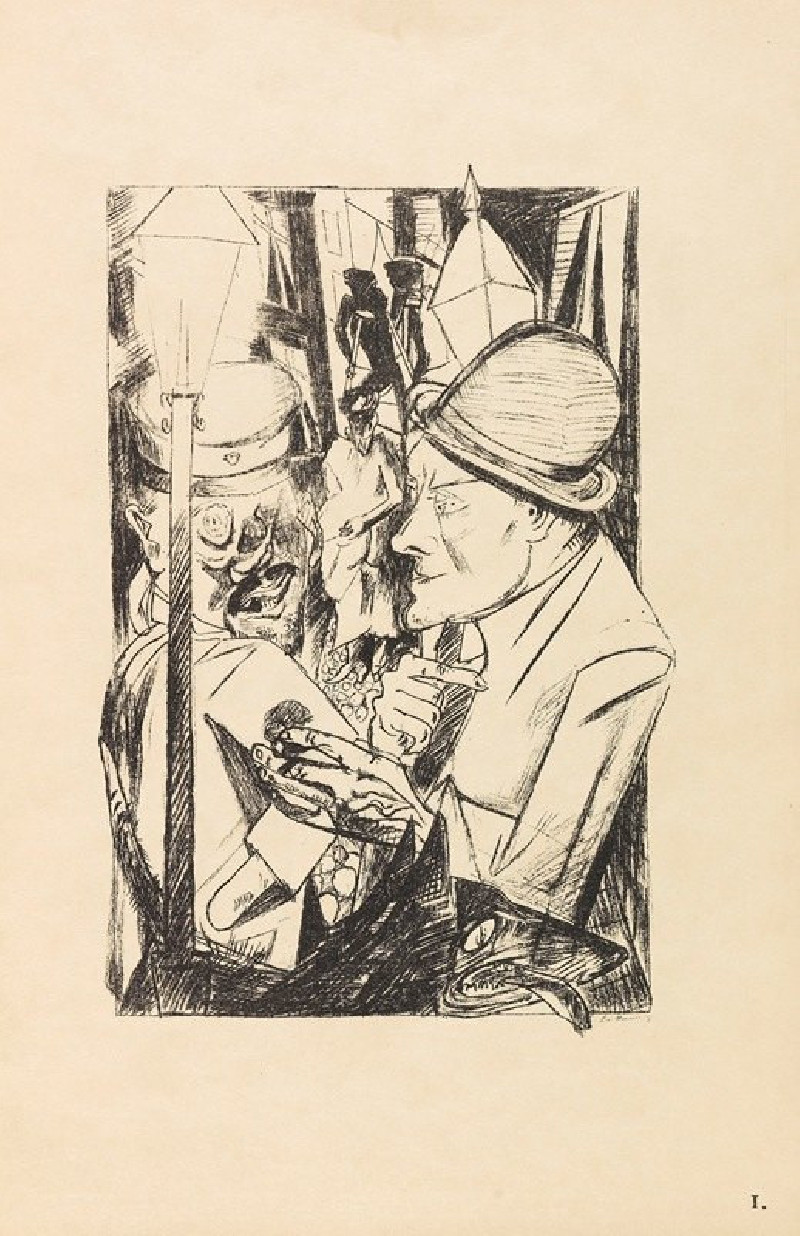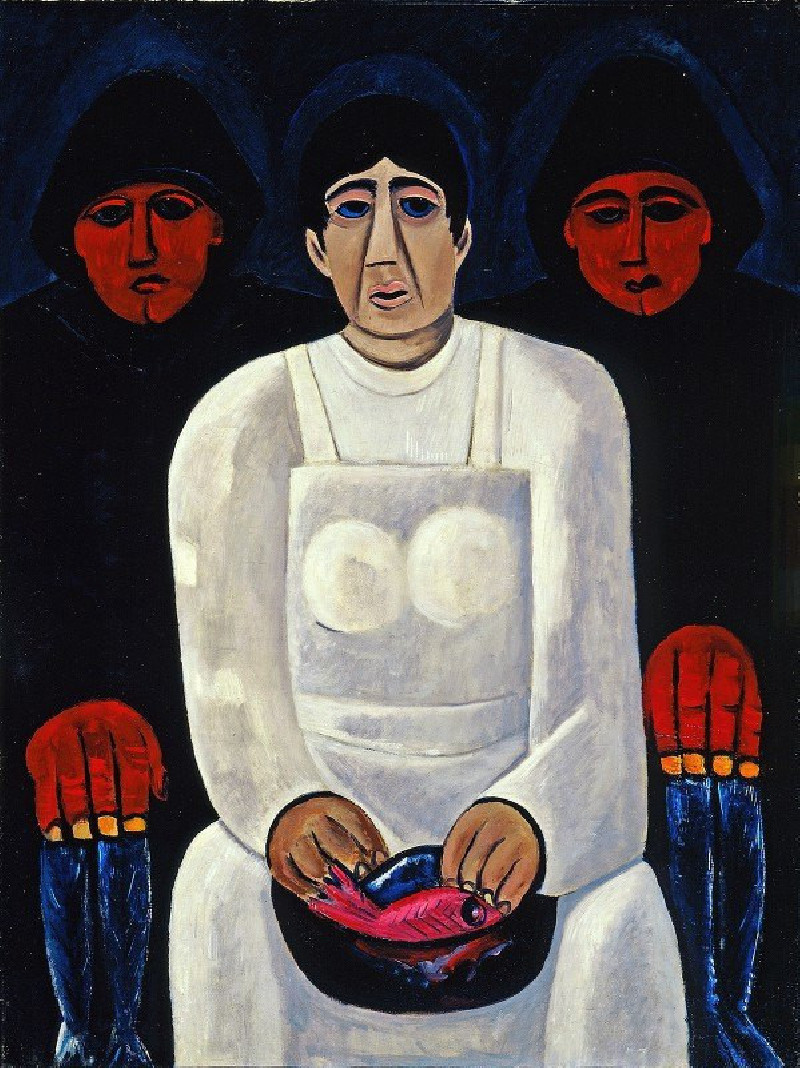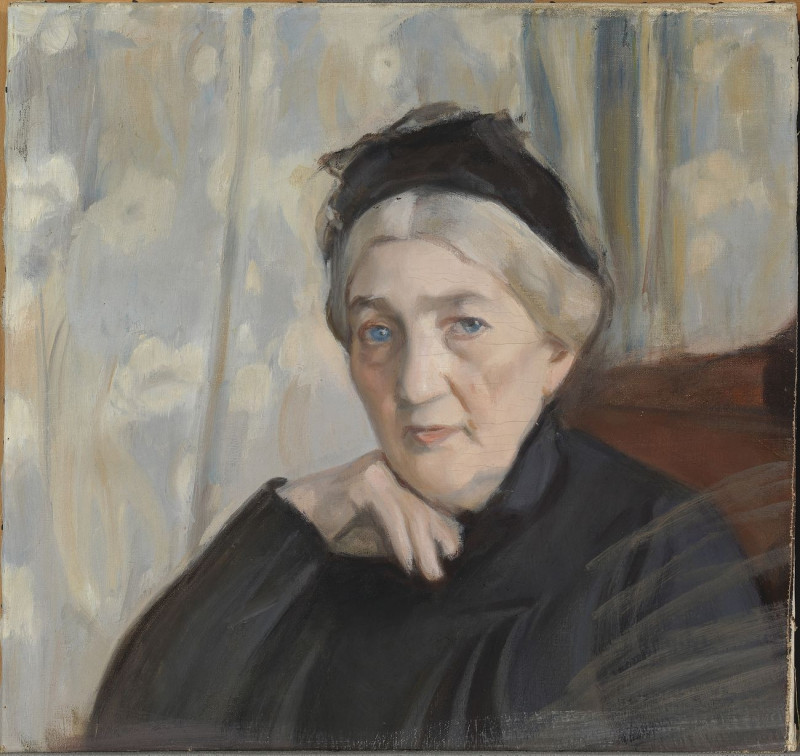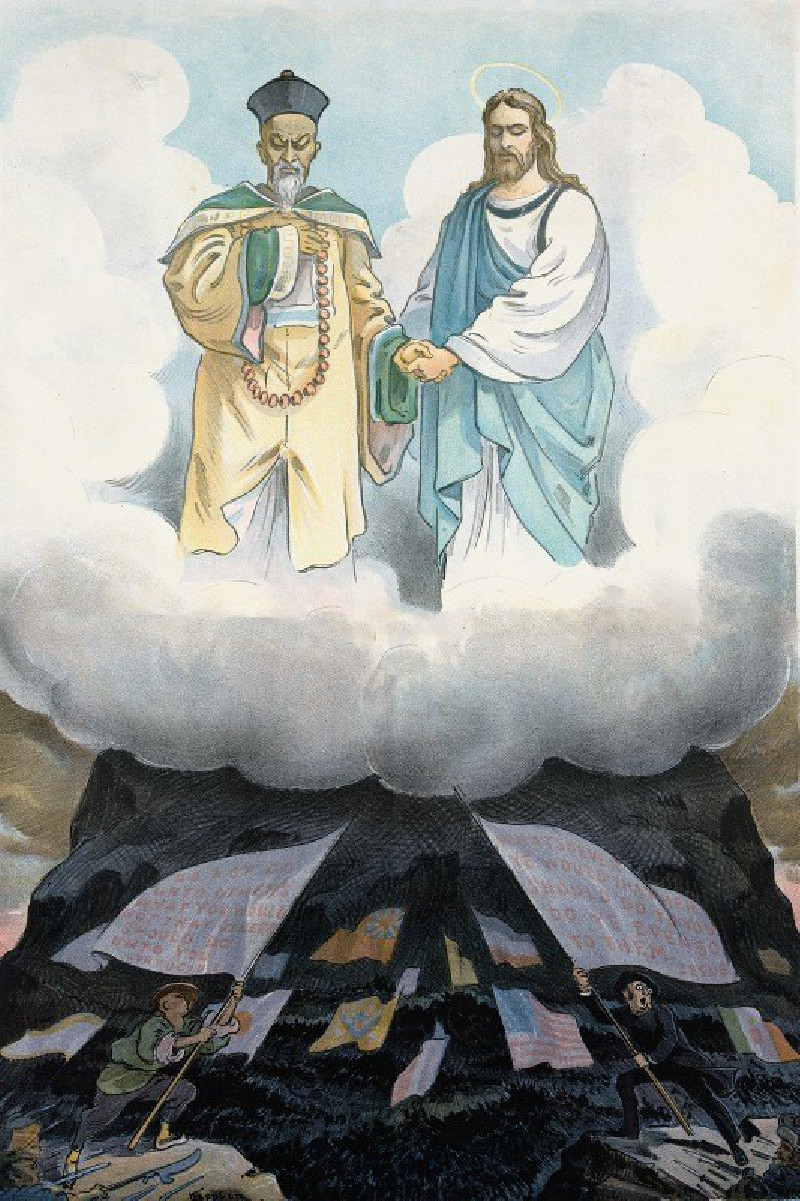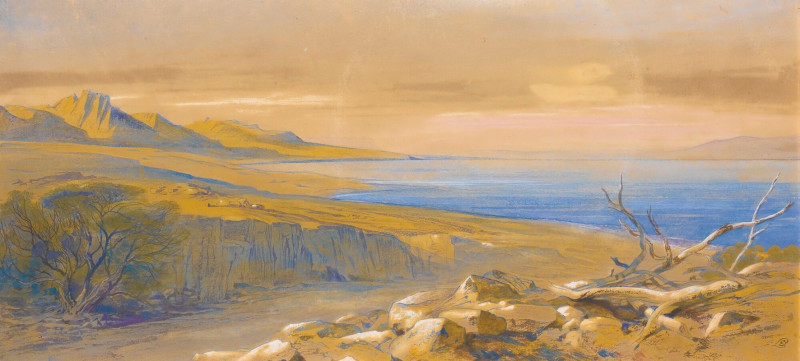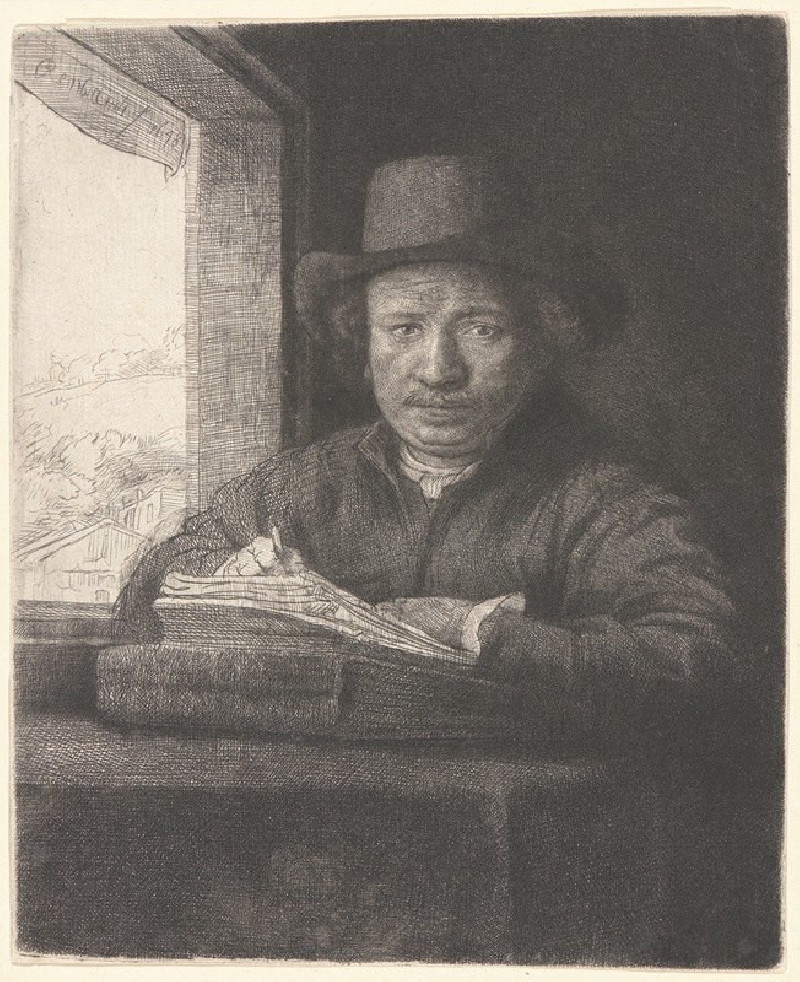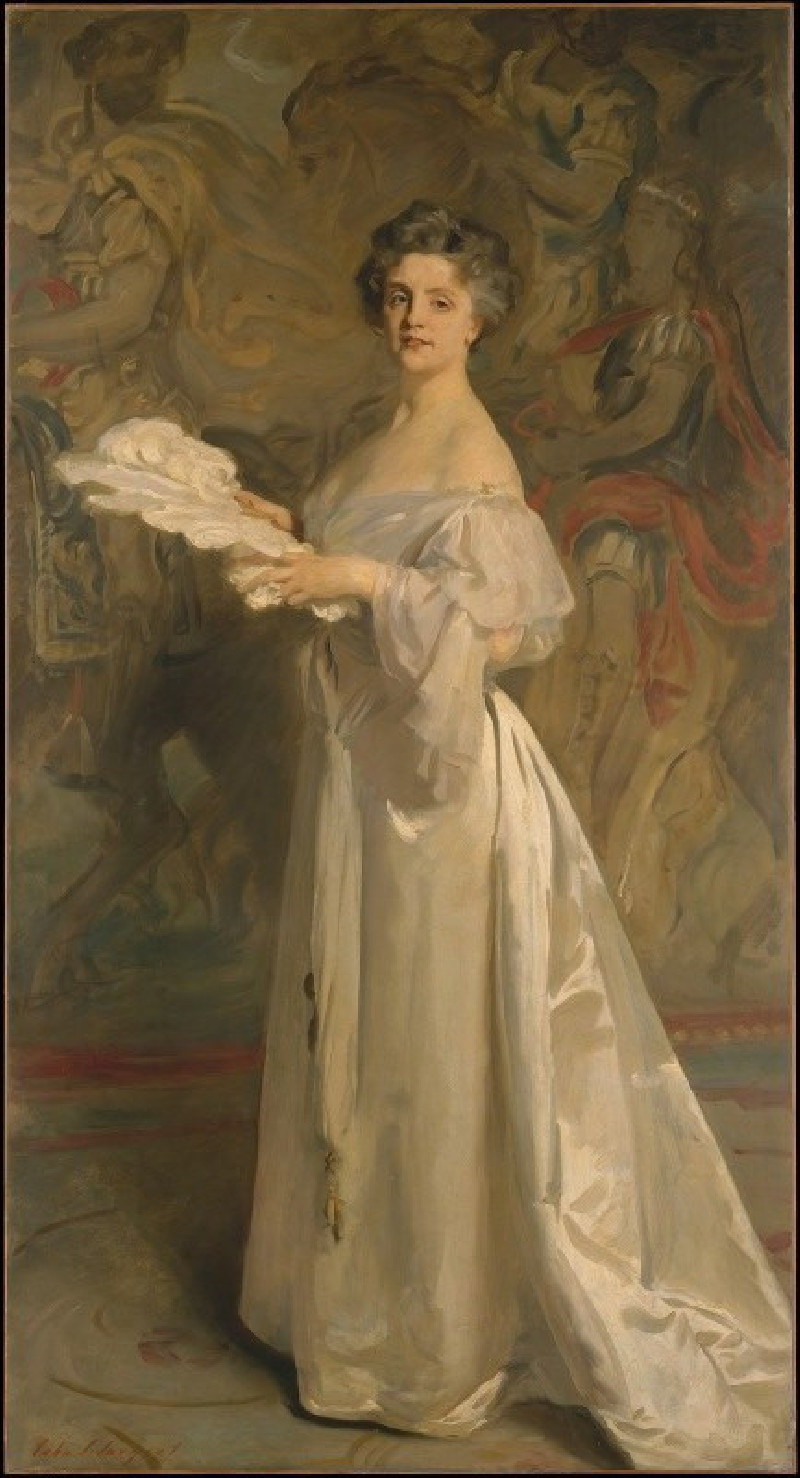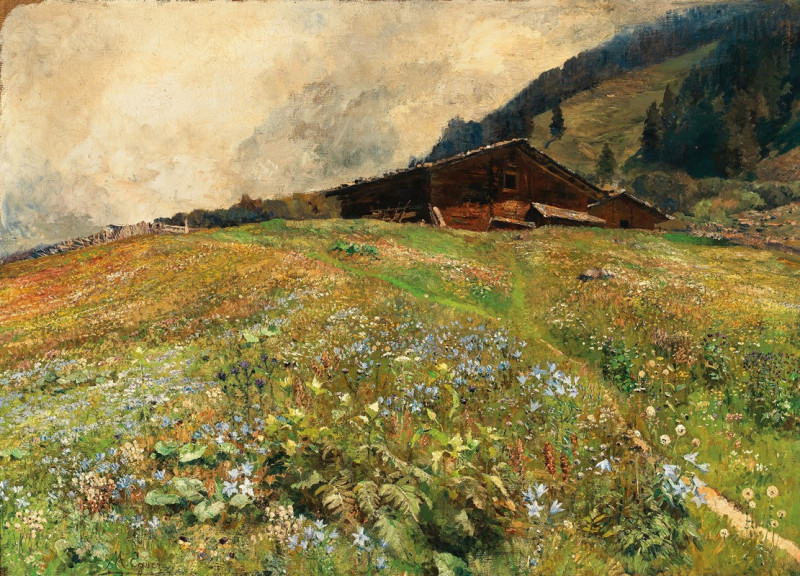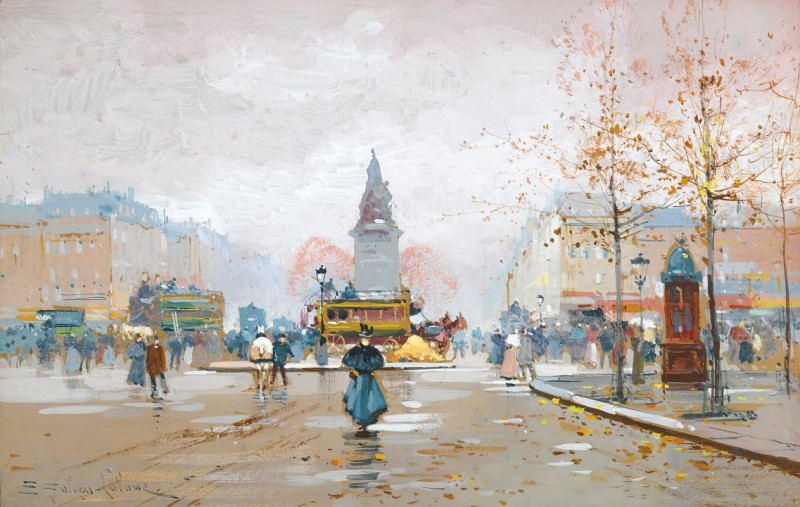Eishockeyspieler (1935)
Technique: Giclée quality print
Recommended by our customers
More about this artwork
Welcome to the evocative world of Ernst Ludwig Kirchner, a pivotal figure in Expressionism. "Eishockeyspieler" (1935), translates to "Ice Hockey Players", is a striking example of Kirchner's mastery in capturing dynamic movement and intense emotion through seemingly simple lines.This etching depicts a group of ice hockey players, intertwined in a moment of action-packed play. The composition leaps out, showing figures crudely yet expressively delineated against a furiously scratched background that seems to echo the icy swirl of the rink. The players are rendered in angular forms, their bodies tilted and bent in the fervor of the game. Noteworthy are their exaggerated, almost abstracted poses that convey the swift, rough nature of ice hockey.Kirchner’s use of angular lines and rough texturing contributes an element of raw energy and tension to the scene, reflecting the vigorous activity of the sport. The simplistic yet bold depiction of the figures, with minimal detail but maximum expressive effect, is characteristic of Kirchner’s stylized approach to art.This etching is not merely a representation of a sports event; it embodies the intensity and the kinetic energy of the moment, portrayed through the lens of Kirchner’s distinctive expressionist style.
Delivery
Returns
Ernst Ludwig Kirchner (1880–1938) was one of the most important German Expressionist painters. He was a co-founder of Die Brücke, a group of German expressionist artists formed in Dresden in 1905. Die Brücke and Kirchner took inspiration from Vincent Van Gogh and Edvard Munch, as well as African and Oceanic art. They used woodblock printing as a medium to showcase their signature style: flat, unrealistic images with vivid colors. The recurring themes in Kirchner's artworks included exotic cultures, faraway landscapes, self-portraits, dancers and Berlin street life. His paintings and prints effectively portrayed non-European cultures despite the fact that he never traveled outside of Europe.

